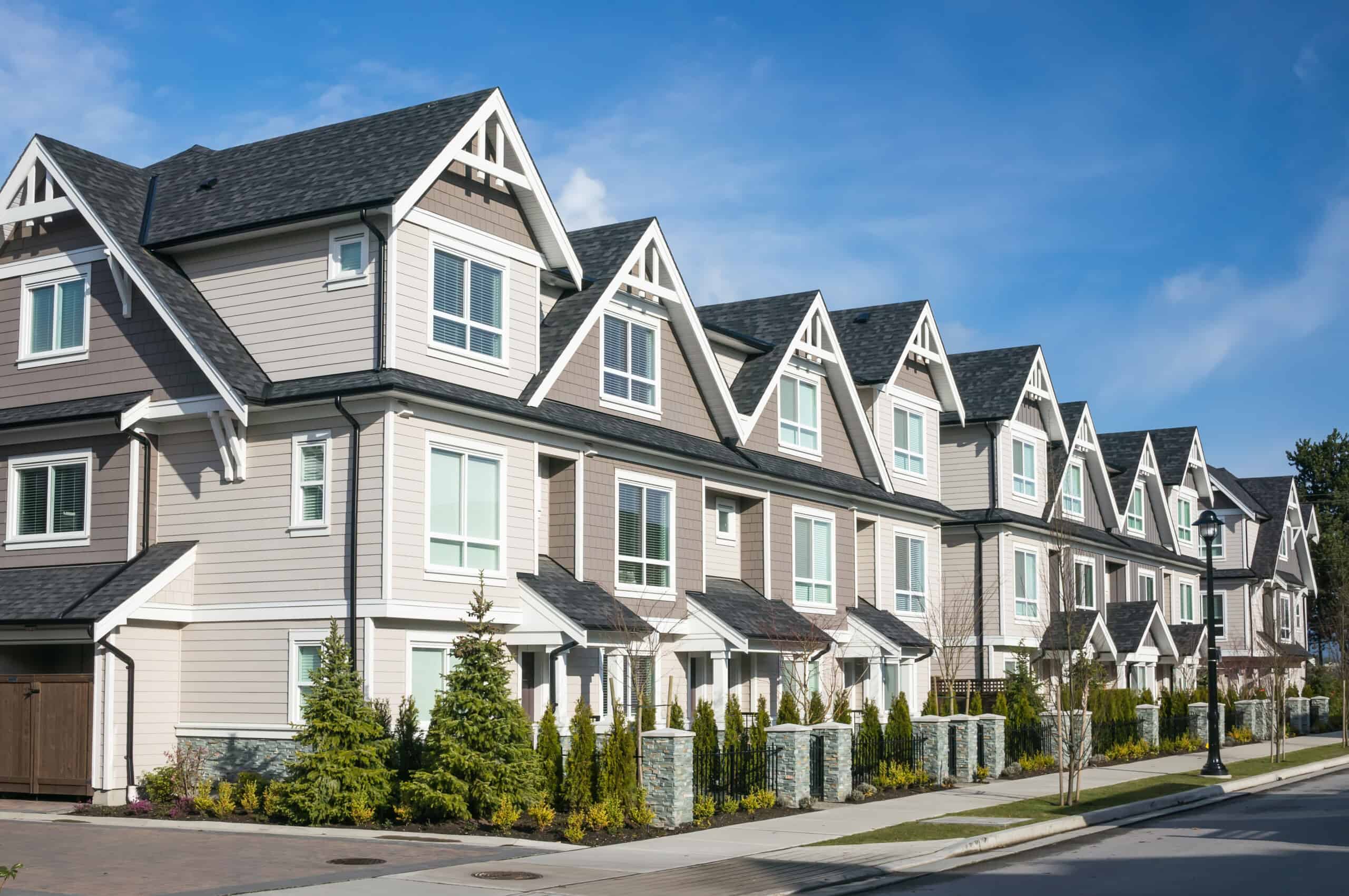Wealthtender is a trusted, independent financial directory and educational resource governed by our strict Editorial Policy, Integrity Standards, and Terms of Use. While we receive compensation from featured professionals (a natural conflict of interest), we always operate with integrity and transparency to earn your trust. Wealthtender is not a client of these providers. ➡️ Find a Local Advisor | 🎯 Find a Specialist Advisor

But if none of them apply to you, do yourself a favor and buy.
I was a renter from the time I left my parents’ home until I was 38.
From that point forward I owned a home, As of 3 years ago, I’m also a landlord, leasing out my previous home.
Based on that experience from all sides of the issue, I’m a firm believer that in most cases (when you can), buying your own home is a far better financial proposition than renting.
However… as I often say, personal finance is just that – personal. Which means there are people who should avoid buying a home. If any of the following apply to you, don’t buy.
A Comprehensive List of Reasons to Avoid Buying a Home
While I tried making this list exhaustive, I’m sure some readers will come up with some I missed. If you do, please leave it in a comment so we can make this as complete a resource as possible for later readers.
We’ll start with the most obvious reason, and proceed to the less obvious.
- The most obvious reason – you’re living rent-free somewhere that works for you. This may be your parents’ basement, a friend’s couch, or military housing (that last was true for me for a few years). Or someone else (your parents, the military, your employer, etc.) is paying your rent, but wouldn’t cover your mortgage payments.
- Your living arrangement works for you, and while you do pay rent, it’s substantially below market. This could be because your home is rent-controlled, you’re splitting the rent with house-mates, your landlord has no idea (or doesn’t care) that she could charge much higher rents, or you’ve made an arrangement with your landlord to take care of maintenance in return for a substantial discount on the rent (this happened to me when I was a grad student).
- You’re living someplace you wouldn’t want to buy and live in for the long haul, and thus paying much less in rent than you would need to pay for a home you’d want to buy. This allows you to save money toward buying a home in a few years.
- You’re planning to move in a year or two, so you can’t justify the cost of buying and selling. As Schuyler H. Lemler Accredited Financial Counselor® at Apothecary Financial puts it, “If you’re planning on staying in an area short-term, renting is almost always less expensive.” Kelley Long, CPA, CFP®, and owner of Financial Bliss Coaching cautions, “Even if the market where you live is skyrocketing, resist the urge to try to make a quick buck – things can change on a dime and even if they don’t, the costs of buying and selling often add up to more than any profit you might make.”
- While you have no current plans to move, you prefer the flexibility of renting over the potential long-term financial benefit of buying a home. Schuyler Lemler expands here, “If someone is a savvy renter, they can take advantage of unexpected opportunities because they stayed flexible – that’s one of the key advantages to renting – freedom.”
- You can’t find a mortgage that would allow the too-small down payment you can afford.
- You can find a mortgage that lets you borrow nearly 100% of the cost of buying the house, but including the private mortgage insurance (PMI) increases the monthly payment far above the rent for a similar property.
- You can afford the down payment you need for buying, but it would leave you house-poor and at financial risk should any emergency come up. Tim Woodward, CFP®, CDAA™, MBA, Co-Founder, and Wealth Advisor at Blend Wealth gives an example of such a situation, “You don’t have an adequate emergency fund of 3-6 months of living expenses in place; having a solid emergency fund in place is key when buying a home because unexpected expenses and maintenance on the home will come up.” Kelley Long adds, “A good rule of thumb is to set aside 1-4% of your purchase price for potential repairs and maintenance, in addition to your emergency fund; if you don’t have enough savings to fund repairs and maintenance, you could find yourself taking on additional debt or even losing your home should something break.”
- Your income isn’t stable, so you can’t take on the long-term commitment of a mortgage.
- Your credit score is too low and/or you have too much debt and/or as Tim Woodward mentions, “you’ve started a business and don’t have two years of income to provide a mortgage lender for underwriting,” so you can’t get approved for a mortgage, or if you can, the interest rate is exorbitant, making payments far more expensive than rent for a similar property. If you can’t get a good mortgage rate, Kelley Long suggests, “It’s best repairing your credit before committing to a mortgage.”
- You’re in an unstable relationship, so buying together or buying solo and having your current partner move in with you isn’t appealing.
- Your local real estate market is so hot that you’re sure to end up in a bidding war that will drive the price you have to pay far above what makes sense for you to spend.
- Your local real estate market is very expensive but home values are dropping. This may make it more beneficial to hold off until prices stabilize. However, Kelley Long cautions, “Beware market timing – if you’re ready to buy, can afford the property, and plan to stay for many years, trying to wait for the ‘bottom’ could have you miss out on your dream home. Avoid over-paying, but if you end up paying $20k more than you might have paid if you’d waited, that won’t matter much in the long run.”
- Your local real estate market temporarily favors renting over buying. This may be because interest rates have recently spiked, and the rental market hasn’t caught up yet.
- You aren’t ready to spend the time and effort it takes to buy a home and/or maintain it. This includes applying for and getting approved for a mortgage, looking for (and finding) the right home, making an offer (and possibly getting in a bidding war), moving in, making any and all repairs and/or improvements you’ll want or need to make, buying furniture and décor items to fill your new home, etc. Tim Woodward provides an example here too, “You’re in a season of life where you’re investing in yourself – e.g., you’re in school, starting a business, or learning a new trade, so you prefer to rent to maximize your free time.” Kelley Long quips, “Sometimes the best thing about renting is not having to know a good plumber…”
But If None of These Are True for You…
If none of the above apply to your personal situation, then buying is most likely going to benefit you in as short a time as 2-3 years. This is because, contrary to what many bloggers out there may think, rent is unlikely to be cheaper than the cost of homeownership for a similar home in most cases.
While those bloggers may claim that the mortgage, taxes, insurance, repair bills, etc. end up being higher than rent, in most cases this just isn’t so.
This for the simple reason that landlords are in this as a business. This means we want to make money and maintain a positive cash flow. Thus, we charge high enough rent to cover our full mortgage payments, real estate taxes, insurance, repair bills, etc., and still have a few hundred dollars in extra income each month.
And who gets to pay for all that? You, the renter.
If you’re ok with that, please keep renting. You help power our bottom line.
The Bottom Line
I can’t think of many financial rules that have no exceptions.
The claim that you should always prefer to buy a home over renting certainly isn’t such a rule. In fact, the above are 15 sure reasons and situations where you should avoid buying a home.
However, if none of these are true for you, you’d be better off buying.
Are you ready to enjoy life more with less money stress?
Sign up to receive weekly insights from Wealthtender with useful money tips and fresh ideas to help you achieve your financial goals.
Disclaimer: This article is intended for informational purposes only, and should not be considered financial advice. You should consult a financial professional before making any major financial decisions.

About the Author
Opher Ganel, Ph.D.
My career has had many unpredictable twists and turns. A MSc in theoretical physics, PhD in experimental high-energy physics, postdoc in particle detector R&D, research position in experimental cosmic-ray physics (including a couple of visits to Antarctica), a brief stint at a small engineering services company supporting NASA, followed by starting my own small consulting practice supporting NASA projects and programs. Along the way, I started other micro businesses and helped my wife start and grow her own Marriage and Family Therapy practice. Now, I use all these experiences to also offer financial strategy services to help independent professionals achieve their personal and business finance goals. Connect with me on my own site: OpherGanel.com and/or follow my Medium publication: medium.com/financial-strategy/.
Learn More About Opher
Wealthtender is a trusted, independent financial directory and educational resource governed by our strict Editorial Policy, Integrity Standards, and Terms of Use. While we receive compensation from featured professionals (a natural conflict of interest), we always operate with integrity and transparency to earn your trust. Wealthtender is not a client of these providers. ➡️ Find a Local Advisor | 🎯 Find a Specialist Advisor







